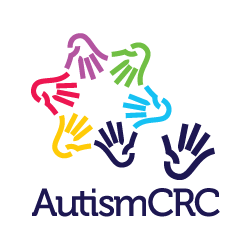UWA PLUS
Differential diagnosis: distinguishing autism from other neurodevelopmental and mental health conditions
This course explores a range of differential diagnoses relevant in diagnostic assessments for autism across the lifespan.
Students will learn to identify and describe features of autism that may overlap with other neurodevelopmental and mental health conditions. They will also develop the knowledge and skills to identify and explain some of the ways in which autism may be distinguished from other conditions.
Upon successful completion, you'll receive:
- Two PD Points - stackable for unspecified academic credit in award courses
- A Certificate of Achievement
- A UWA Plus Professional Development Transcript, listing all successfully completed micro-credentials
- Delivery mode
- Online
- Course dates
Duration

What you'll learn
Identify key differential diagnoses to be considered in diagnostic assessments for autism across the lifespan
Identify and describe features of autism that may overlap with other neurodevelopmental and/or mental health conditions
Demonstrate knowledge of, and explain some of the ways in which, professionals might distinguish autism from other neurodevelopmental and mental health conditions
Understand and explain key constructs and terms relating to differential diagnosis and the Guideline's recommendations on differential diagnosis

Why study this course?
This short course will provide future students who are interested in autism assessment and diagnosis with the opportunity to gain a University (micro)credential to recognise their learning. The course provides a unique opportunity for a range of professionals to enhance their knowledge of, and improve their skills in, differential diagnoses in autism diagnostic assessments.
This course explores a range of differential diagnoses, including neurodevelopmental conditions (ADHD, intellectual disability and global developmental delay, FASD, language disorder, social pragmatic communication disorder, developmental language disorder, motor and tic conditions) and mental health diagnoses (social anxiety, selective mutism, depression, bipolar disorder, OCD, feeding and eating, trauma and stress-related, as well as disruptive, impulse control and conduct disorders). We also briefly explore hearing and visual impairment and other medical, neurological or genetic conditions, although the focus of this course is on differentiating autism from other neurodevelopmental and mental health diagnoses.
Recommended prior knowledge
It is recommended that students have English competence (ideally Year 12 English level), and some direct experience working with children, adolescents and/or adults in a professional setting (e.g., school, mental health service, youth service).
Who should study this course?
This unit will be of interest and value to a range of professionals and other stakeholders, such as allied health professionals (e.g., practicing psychologists, speech pathologists, occupational therapists and social workers), as well as medical professionals (e.g., GPs, paediatricians and psychiatrists), who may work with people who may be autistic and/ or who contribute to autism diagnostic assessments in the course of their practice. Other professionals who support children, adolescents and adults across different settings (e.g., mental health nurse practitioners, child health nurses, counsellors, other mental health practitioners, youth workers, educators, and others) may also be interested in this course.
What's next after this course?
You may be interested in enrolling and completing one or more of our other autism diagnosis micro-credentials, also available through UWA Plus.
Learners who meet the admission requirements for the Graduate Certificate in Autism Diagnosis (GCAD) offered via The University of Western Australia may consider applying to the GCAD, which will equip students with the advanced knowledge and applied skills required to contribute to multidisciplinary diagnostic assessments for autism. Following the application and selection process, learners who are accepted and enrol in the GCAD will receive credit towards the first two units of the GCAD after successfully completing all seven of the autism diagnosis micro-credentials (PSYCM510, PSYCM511, PSYCM512, PSYCM513, PSYCM514, PSYCM515, and PSYCM516, which comprise GCAD units PSYC5520 and PSYC5521).
Please note that not all learners who enrol and complete the autism diagnosis micro-credentials are eligible to apply for the Graduate Certificate in Autism Diagnosis (GCAD). This is because the GCAD is developed to provide graduates trained in psychology, speech pathology, occupational therapy, paediatrics, or psychiatry with the specialist knowledge and applied skills required to participate in team-based diagnosis for autism. Therefore, acceptance into the GCAD is only available to learners who meet the course eligibility criteria following an application and selection process.
Industry endorsement
This micro-credential is part of a suite of seven credit bearing micro-credentials (CBMCs) developed by Autism CRC, with The University of Western Australia.


